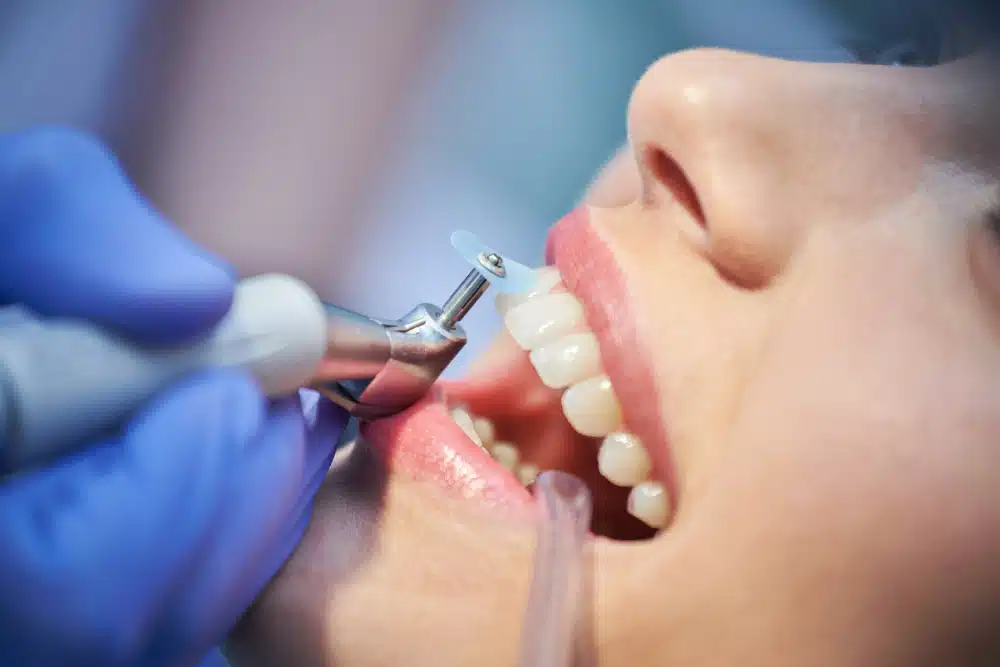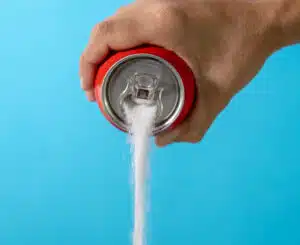Effects of Soda on Teeth: Why You Should Save Your Smile
Do you ever stop to think about what happens every time you drink a soda? Many people don’t realize how damaging these sugary, acidic drinks are to their teeth—and the rest of their health. At your last dental checkup, did you find yourself sinking lower in the chair as cavity after cavity was found? If so, it’s time to ask yourself: how much soda are you drinking? The effects of soda on teeth are both immediate and long-term, and they’re more harmful than you might imagine.
Sugar and Acid: A Double Threat
Some of the worst cases of dental decay I’ve seen involve sodas and sweetened iced teas. A single 12 oz. can of soda contains roughly 12 teaspoons of sugar—basically liquid sugar! Read ingredient labels carefully for added syrups, concentrates, or high fructose corn syrup (HFCS)—they all spell trouble for your teeth. According to the CDC, most Americans still consume far too many sugar-sweetened drinks, significantly increasing their risk of tooth decay.
Imagine watching someone stir 12 teaspoons of sugar into one cup of coffee—you’d be horrified! Yet most people drink cans, bottles, or even liters of soda daily without a second thought. The sugar feeds harmful bacteria in your mouth, producing acids that erode enamel and create the perfect conditions for cavities.
How Soda Causes Cavities Step-by-Step
The process is surprisingly fast. First, sugar in soda feeds bacteria that naturally live in your mouth. These bacteria produce acid as a byproduct. Combine that with the already acidic nature of soda itself, and you’re essentially giving your teeth a continuous acid bath. Over time, the enamel weakens, leading to cavities, sensitivity, and tooth decay. Even sugar-free sodas can cause enamel erosion because of their high acidity. The American Dental Association warns that frequent soda consumption dramatically increases your risk of long-term enamel loss.
The Acid Bath You Didn’t Expect
Sugar isn’t the only villain. Soda is so acidic that it can loosen rusty bolts or clean battery terminals—imagine that on your tooth enamel! This acid eats away at the protective outer layer, making your teeth more vulnerable to decay. Once enamel is gone, it doesn’t grow back. These effects of soda on teeth can happen faster than you think.
Beyond Your Mouth: Whole-Body Effects
Reducing soda benefits more than just your teeth. Frequent soda consumption has been linked to diabetes, kidney stones, osteoporosis, and even low potassium levels, which can lead to muscle weakness. Your body—and your dentist—will thank you when you swap soda for healthier alternatives.
What to Do Instead
If giving up soda feels difficult, start by cutting back slowly. Replace one soda a day with water, unsweetened sparkling water, or herbal tea. If you need help breaking the sugar habit, talk to your doctor or dentist. There are many ways to transition away from these harmful drinks while still enjoying refreshing beverages.
FAQ About Soda and Teeth
Does soda cause permanent damage to teeth? Yes, once enamel is eroded by the acids in soda, it cannot regrow. This makes teeth more prone to cavities and sensitivity.
Is diet soda safer for your teeth? Not really. While diet sodas lack sugar, they are still highly acidic and can erode enamel over time. Water and unsweetened alternatives are far better choices.
How quickly can soda damage teeth? Enamel softening can begin within just 20 minutes of exposure to soda. Sipping it throughout the day keeps your teeth under constant attack. This is one reason why the effects of soda on teeth are so harmful over time.
Key Takeaway
Cutting back on soda—or better yet, eliminating it—may be one of the best steps you can take for your oral and overall health. The effects of soda on teeth are well-documented: enamel erosion, cavities, and long-term dental problems. Don’t let this common habit rob you of your smile.
For more tips on protecting your teeth, visit our ToothWiz Blog page.





